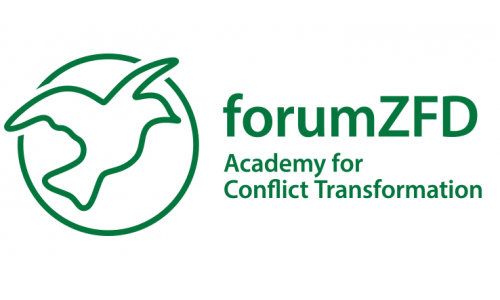Trauma-responsive Project Planning
The four weeks will begin with orientation in the group - including finding study pairs or triads - and the course material, which will include an assessment framework and readings that can enhance participants’ lenses for applying trauma responsiveness to project planning.
In the second week, the participants identify challenges, resources, and possibilities for trauma-responsive project planning, looking at specific ways the group has experienced trauma-responsive or trauma-clueless project and program management; participants are invited to work with the assessment framework using instructor-provided case studies and/or bring resources and cases that have been part of their experience.
In the third week, the conversations that emerge in the second week will continue, inviting small group work related to challenges, resources, and possibilities. That week, participants will create and share a 5-minute video or podcast, and will be responsible for listening to and offering feedback/questions to approximately 4 others’ short presentations.
In the fourth and final session, there will be room to discuss these final projects; acknowledge the possibilities, boundaries, and limitations for integrating trauma-responsiveness into peacebuilding projects; and close the training. All sessions (and self-guided learning) will involve some self-care and collective care practice.
By the end of the training, participants will have:
- deepened their understanding of the meaning of being “trauma-responsive” and the implications for peace and conflict analysis, project planning and implementation, and organizational functioning
- engaged with a trauma-informed assessment framework related to their active and/or past projects
- explored and shared resources for understanding and addressing the intersections of trauma (collective, personal, relational, organizational, cultural, structural, historical, trans-generational) and their work realities
- considered possibilities, boundaries, and limitations – personally and professionally – for addressing the impacts of trauma
- practiced body-mind tools to reignite personal and team safety, dignity, and belonging in the face of chronic violence and uncertainty
The course is designed for people who have been working to understand the sources/causes/origins of trauma responses, the diverse impacts of trauma on individuals and collectively, and how those impacts - and responses to them - can sustain or interrupt cycles of harm. After establishing a broad foundational understanding of these dynamics (ideally in prior learning, though we will touch on this foundation at the opening of this course), people can focus on the specific application of that knowledge to project planning and management. As planners, designers, implementers, and evaluators of projects and programs in traumagenic circumstances, we do well to ask different questions that emphasise the realities of trauma responses in our planning, implementation, and evaluation processes. Team leaders, individuals working independently, facilitators and trainers, project designers, implementers, and evaluators can all benefit from this course that invites participants to focus trauma-responsiveness on project design and planning.
Lugar
Para apuntarse en el curso, por favor, haga clic aquí. Apuntarse ahora
| Temas | |
| Idiomas | English |
| Evaluación | Certificate of Attendance |
| Destinatarios | |
| Métodos | |
| Número de participantes | 20 |
| Acreditación | |
| Certificado |
Si tiene alguna pregunta sobre este curso, póngase en contacto con nosotros.
Para enviar el mensaje haga clic aquí. Contacto

